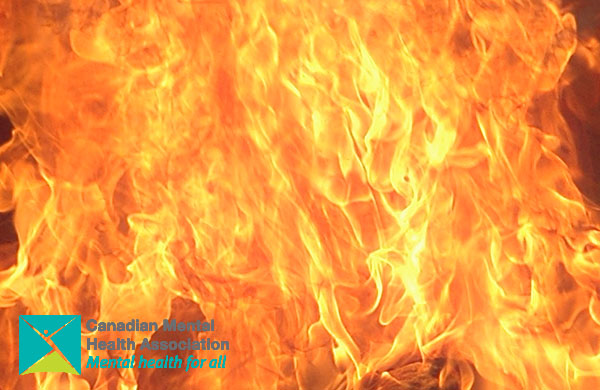Home »

Crisis-line in place to navigate wildfire season
By Erin Knutson
The Canadian Mental Health Association (CMHA) is on board with its initiative to navigate wildfire concerns and bring much-needed support to the public.
“The past two fire seasons have brought an increase in call length and call volume in comparison with 2016, and 2017,” said Administrator of Crisis Services for the CMHA for the Kootenays, Natalie Hake.
The CMHA stands firmly behind its resolve to offer support services to those in need. First responders, the general public, or those dealing with other mental-health related concerns exacerbated by fire season are encouraged to seek help.
Evacuation, re-lived trauma from prior fire seasons triggered by new fires are all stressors that have added to an increase in calls to the Crisis Line, according to the CMHA.
“Many are still navigating the financial realities and emotional challenges that arose from previous wildfire seasons. The impact has escalated physical, emotional, and mental responses from callers,” said Hake.
No one is immune.
Calls come in from across the board and people are trying to manage stress and Post Traumatic Stress Disorder (PTSD) as seen in previous years, according to Interior Crisis Line Management and Hake.
Resiliency, empowerment, and resources are the Crisis Line’s mandate to help callers deal with stress and anxiety around this issue.
“We are prepared to reduce the impact and to help,” said Hake.
Engaging callers, and de-escalating crisis by introducing additional supports is important.
Work-related counselling (EPA), or Mental Health programs through Interior Health (IH) are crucial tools for Crisis Line Workers (CLW) when addressing a caller.
Proactivity, problem-solving, and introducing new coping skills are part of the CLW’s mandate to empower individuals coping with trauma.
The CLW’s model seeks to soften the fire-related impact to the public and to provide tools to help people regain a sense of well-being and control.
“Sometimes people just need to reach out and share how they’re feeling, and the crisis line provides an anonymous and confidential place to do that,” said Hake.
Outreach and education on crisis line services are a high priority for Hake and her team. They are prepared and equipped for fire-related calls, as well as campaigning to create an awareness of services available to the public.
“We’re planning some events to get the word out—we’re prepared to have a discussion,” said Hake, on their efforts to get the message out to people about services, and their promise to create a safe and anonymous environment for callers.
“People need to know that we’re here and that we can help and that they’re not alone,” she said.
Families are an essential part of the equation. Hake emphasizes the importance of reaching children and youth who may be struggling with effects brought on by fire season and that parents get involved in crisis management.
“We’ve created material for families to share with their kids and to help parents reach out to children who may be struggling with symptoms related to trauma,” she said.
The CMHA is always in need of volunteers who want to join the highly trained group of individuals who provide support for callers on a daily basis.
“If someone would like to learn life-changing skills and provide empowering support, we are always looking for caring and compassionate people to come forward.”
For more information on crisis services contact Natalie at 250-426-5222 ext 3063 or CMHA.
e-KNOW







